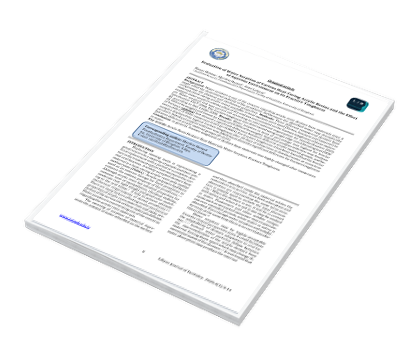Evaluation of Water Sorption of Various Heat-Curing Acrylic Resins and the Effect of Aqueous Environment on its Fracture Toughness
DOI:
https://doi.org/10.37376/ljd.v4i1.1912Abstract
Background: Water sorption is one of the concern regarding acrylic resin denture base materials since it
might affect the dimensional stability of the prosthesis, furthermore the absorbed water may dramatically
compromise the physical and mechanical properties. Methods: Three different commercial denture base
materials (heat-curing acrylic resin) available in local markets were used (Vertex, Ivoclarw and Luxacryl)to
evaluatewater sorption and the effect of dry andwet environment on the fracture toughness ofthese materi-
als. Water sorption test was carried out according to international organization for standardization (ISO)
Specification 1567-2000.The fracture toughnesswasdeterminedusing single edge notch bending test(SEN-
B) according to ISO 13586:2000. Results: Water sorption in term of percentage was highest for Ivoclar
(0.78%ofitsweight) andlowestforLuxacryl(0.68%ofitsweight). Statistical analysiswithtwo-wayAnalysis
of Variance (ANOVA)test showed a significant difference between different acrylic material groups, and be-
tweendifferentwater immersiontimes (p<0.0001). For fracture toughness,ithas been foundthatthe Ivoclar
samples displayed the highest fracture toughness after 28 days of immersion in distilled water at room tem-
perature.Statisticalanalysiswithtwo-wayANOVAtest showedasignificantdifference for fracturetoughness
between different acrylic material groups (P<0.04).
Conclusion: in general, fracture toughness of denture base materials was highly-changed after immersion
in water.
Downloads

Downloads
Published
How to Cite
Issue
Section
License
Copyright (c) 2022 Libyan Journal of Dentistry

This work is licensed under a Creative Commons Attribution-NonCommercial-NoDerivatives 4.0 International License.







